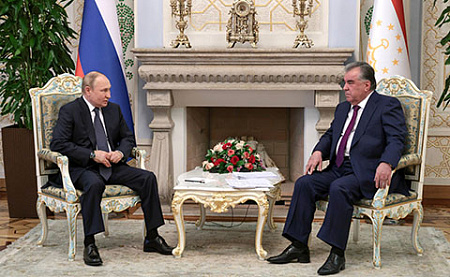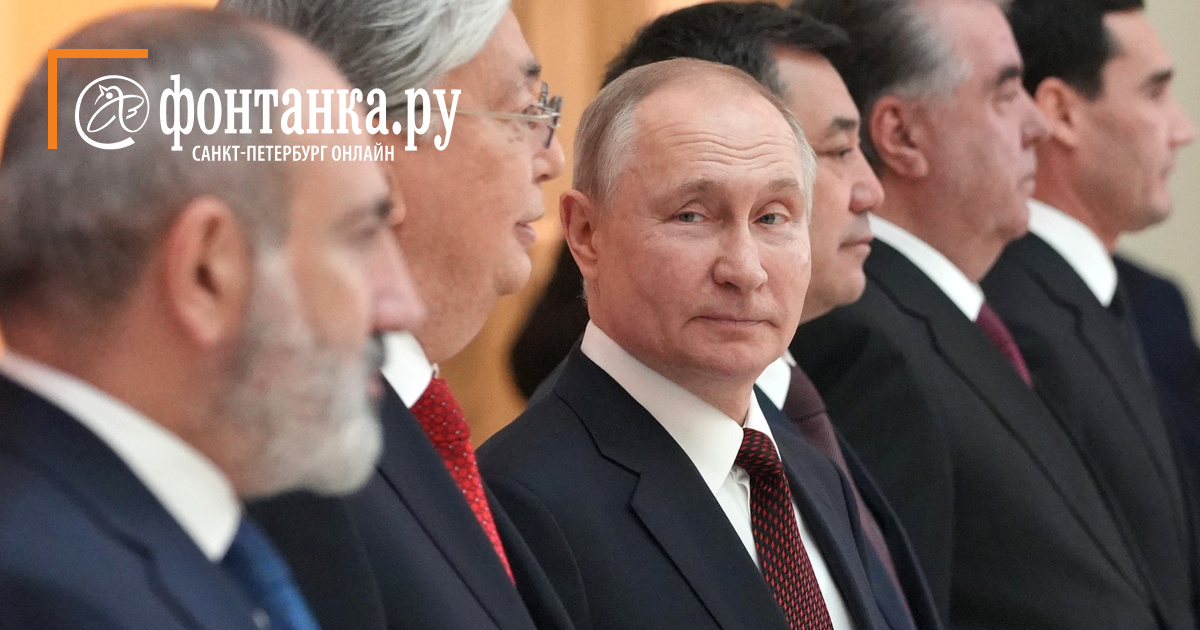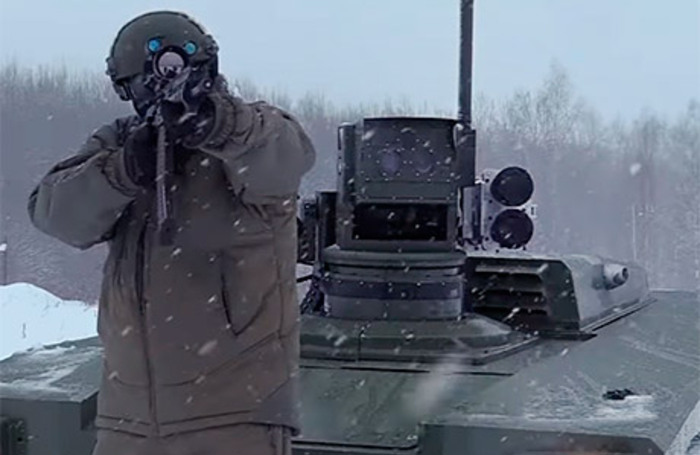Russia is trying to get ahead of the United States on the Afghan “negotiation track”
The Americans are going to deprive the status of the main intermediaries between Ahmad Massoud and the Taliban terrorists
The photo shows the meeting of President Vladimir Putin with Tajikistan Emomali Rahmon. Photo site kremlin.ru
Russian President Vladimir Putin during his visit to Dushanbe on June 28 discussed the situation in Afghanistan with Tajikistan Emomali Rahmon. The details of this conversation have been made available to the public so that observers and experts have the opportunity to form their own guesses as to its content. So, on the eve of his visit to Dushanbe, the presidential leader announced the recognition that Putin called “educate” Rahmon on the subject of “adjusting” the state line of Tajikistan in the government of the Taliban (the organization is banned in the Russian Federation) in neighboring Afghanistan.
According to the expected release of this version, Moscow is moving towards recognition of the Taliban regime and will seek to ensure that the leadership of Tajikistan is also integrated into the fairway of such a movement, abandoning, in particular, the line of support for the anti-Taliban National Resistance Front of Afghanistan (FNSA). In this regard, it should be recalled that the leader of his FNSA, Ahmad Masud, and his team have been on the territory of the Republic of Tajikistan for more than 10 months, from where they lead military operations against terrorists of the Taliban (an organization banned in the Russian Federation) in the Afghan provinces of Panjshir, Baghlan, Takhar etc.
Judging by the video reports on Russian television dedicated to the meeting between Putin and Rahmon on June 28, the receipt of the “educational-correctional version” was not confirmed. Putin publicly denied the Taliban exclusivity to Russian attention, emphasizing that Moscow maintains contacts “with all the armed forces” of Afghanistan, and not just with “the political forces that control the country.” The Russian president also emphasized that Rahmon “knows better” how the situation in neighboring Afghanistan is going. Thus, we can conclude that the Kremlin has no complaints against Dushanbe regarding the Afghan strategy of Tajikistan.
It is also noteworthy that during the public part of the meeting with his Tajik counterpart, the President of the Russian Federation never once used the words “Taliban” and “Taliban”. And this is a very eloquent and certainly non-random signal that cannot be paid attention to: observers of the internal Russian conflict are well aware of cases when Putin defiantly refuses to be mentioned by name and signs of some obviously unpleasant manifestations. And political impartiality can hardly be called happy.
These, undoubtedly, important nuances of the dramaturgy of the meeting between Putin and Rakhmon in Dushanbe, however, do not answer the question that the Russian president discussed with the Tajik on the Afghan agenda. Let’s take the risk of questioning, taking into account the logic of sustainable development in Afghanistan and the processes around it, that the leaders of the two states could talk about at least two subjects.
The first plot is Russian support for Tajikistan in terms of securing the border with Islam and providing for the Tajik security forces, confirmation of guarantees of allied obligations from Moscow, as well as a guarantee to Dushanbe that it cannot accept possible proposals from the United States regarding “assistance” within the framework of Tajikistan’s security.
The second is the participation of Tajikistan in a possible new political structure of the Kremlin, connected with the plot with Afghanistan. Earlier, “NG” reported on the upcoming at the end of the summer of this year. meeting in Washington of a representative of the Taliban, Afghan political emigration and the arrival of the Federal Tax Service. The organization of this summit is actively spreading with the storm of May by US Special Representative Tom West and other American emissaries, who also use the opportunities of some of Washington’s allies in Europe and Asia. It is obvious that your success at the conference on intra-Afghan reconciliation does not linger in Russia today. Therefore, it is logical that Moscow seizes at least a frustrated American initiative by preventing the participants in such a political incident from coming to Washington at the most important meetings. As a maximum, the Kremlin can try to be proactive and hold its own conference on inter-Afghan regulation on the Moscow platform, allowing a representative of the Taliban, Afghan political emigration and the armed opposition to attend.
the role of the FNSA and its leader is becoming a key one both in the parliament and in a possible alternative Russian project of an inter-Afghan presence. Without Ahmad Masood and the FNSA, it is now impossible to stabilize in the alleged situation in Afghanistan. Consequently, the receipt and receipt of income by Emomali Rahmon is very strong and in some ways even exceptional influence on the FNSA project. The Americans now need the president of Tajikistan in order to convince Ahmad Massoud to take part in the Washington summit and compromise with the Taliban. The Russian side of Emomali Rahmon may face a solution to the problem of preventing the problem – the participation of Ahmad Massoud and his people in the Inter-Afghan region in the United States and, on the contrary, to convince the leader of the Federal Tax Service in the event of an increase in an alternative to Russia, an alternative to the plans of the Americans, to come to Washington, and in Moscow to participate in negotiations with the Taliban.
The disruption of the Russian-American conference on intra-Afghan regulation would certainly be a sharp acceleration of Moscow’s success and a heavy blow to the reputation of the US President of the sudden Biden and his Demsia, which is extremely important in terms of the run-up to the November elections to the Senate, where the Democrats are already at a fast pace. If the Kremlin also gets ahead of the White House on the inter-Afghan track, dragging it into the main participants in a possible negotiation process, then this may for a long time deprive the American of the chance to secure the status of the main mediators looming on the horizon in the ongoing “great game” in Afghanistan. On the contrary, Russia can just get such a status.
It is quite possible that Presidents Vladimir Putin and Emomali Rahmon talked about this in Dushanbe.




